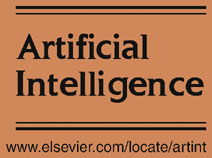UAI 2016 - Tutorials
The tutorials will be held on June 25th, 2016
| 08:30 - 10:20 | Discrete Sampling and Integration in High Dimensional Spaces Supratik Chakraborty, Kuldeep S. Meel, and Moshe Y. Vardi. |
| 10:20 - 10:40 | coffee break |
| 10:40 - 12:30 | Parallel and High-performance Computing for Speeding up Machine Learning Algorithms Anshul Gupta, IBM T.J. Watson Research Center; Prabhanjan Kambadur, Bloomberg L.P. |
| 12:30 - 14:30 | lunch break |
| 14:30 - 16:20 | Integrative Logic-Based Causal Discovery Sofia Triantafillou and Ioannis Tsamardinos |
| 16:20 - 16:40 | break |
| 16:40 - 18:30 | Reasoning Under Uncertainty with Subjective Logic Audun Jøsang |
Discrete Sampling and Integration in High Dimensional Spaces
Presenters: Supratik Chakraborty, Kuldeep S. Meel, and Moshe Y. Vardi.Discrete sampling and integration in high-dimensional spaces are fundamental problems in Artificial Intelligence, with a wide variety of applications spanning probabilistic inference, medical diagnostics, statistical machine learning and the like. This tutorial will introduce the audience to the extensive theoretical and practical research work done in this area over the past few decades. We will discuss in detail the promising recent approach of using universal hashing to count and sample with strong formal guarantees, while also scaling to large and realistic problem sizes.
Parallel and High-performance Computing for Speeding up Machine Learning Algorithms
Presenters: Anshul Gupta, IBM T.J. Watson Research Center; Prabhanjan Kambadur, Bloomberg L.P.This talk gives a generic introduction to parallel and high-performance computing, including hardware, parallel programming models, parallel programming tools, and most common challenges and pitfalls. We will also discuss performance and scalability metrics, parallel algorithm analysis, and the importance of such analysis. We will illustrate some of the parallelization and analysis techniques with a case study involving a machine learning software.
Integrative Logic-Based Causal Discovery
Presenters: Sofia Triantafillou and Ioannis TsamardinosComputational Causal Discovery aims to induce causal models, causal networks, and causal relations from observational data without performing or by performing only few interventions of a system. In this tutorial, we will present a recent approach to causal discovery, which we call logic-based integrative causal discovery. Logic-based integrative causal discovery converts the problem of identifying a causal model that fits multiple heterogeneous data sets into identifying a truth setting assignment of a logic program. To do so, probabilistic and causal statements from any type of source (observational study, experiment, prior knowledge) are translated into logic formulae. This versatile approach can accept and reason with multiple heterogeneous data sets that are obtained under different sampling criteria, different experimental conditions (perturbations, interventions), and measuring different variables.
Reasoning Under Uncertainty with Subjective Logic
Presenter: Audun JøsangSubjective logic is a flexible and powerful reasoning framework which extends traditional Bayesian reasoning frameworks by including degrees of uncertainty. It can be used for modelling and analysing Bayesian networks, trust networks, belief fusion and for Bayesian statistics. The advantage of subjective logic is its rich set of mathematical operators and the ability to include uncertainty in the reasoning models.





